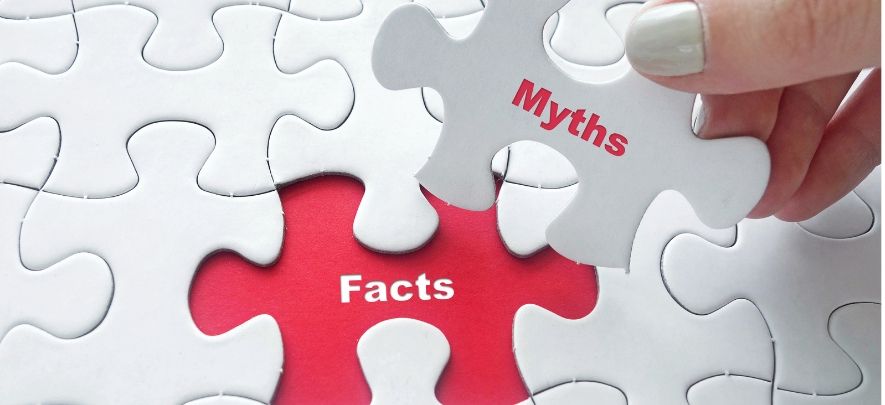Truth be told: Busting myths around HR, legal, compliance and SMEs in retail

Retail
251 week ago — 6 min read
Background: In the last and the final article in the series on ‘Truth be told’, Shiv Joshi uncovers the truth behind human resources, legal & compliance and SMEs in the retail sector. In his previous article, he shared some common myths around customer service and finance in the retail segment.
HUMAN RESOURCES
Myth: HR Departments are too busy dealing with daily problems to be strategic
Fact: Increasingly, HR heads are getting a seat at the table in boardroom discussions about strategy because the right people and culture are the organisational engines of growth.
HR deals with an organisation's most critical asset—its people. Thanks to changing business dynamics and technologies like AI, HR of the future will be different, but it will certainly exist.
Myth: In a few years, companies won’t need HR
Fact: HR deals with an organisation's most critical asset—its people. Thanks to changing business dynamics and technologies like AI, HR of the future will be different, but it will certainly exist. “The HR department will have a key role to play in the future. With the help of technology or because of it, HR professionals will be able to bring in transformational change,” as per Lt. Col. V Srinivasan, Lead Talent Assurance Group, Reliance Retail.
Myth: Raising front-line staff salaries will impact prices
Fact: As proven by a number of studies, higher wages need not translate into corresponding increase in product prices. In fact, one study by the University of California about Walmart deduced that if Walmart raised wages to $12 (from around $10) an hour for Walmart associates, and hypothetically this amount was transferred onto consumers, prices would increase by only $12.49 per year or $0.46 per shopping trip, for the average shopper.
Walmart could cover the wage increase in other ways, such as cutting CEO salary, suggested the study. This is true for other large retailers as well, who could raise wages with only a slight impact on the prices.
Also read: How do HR policies help organisational development
LEGAL/ COMPLIANCE
Myth: The role of in-house counsel is limited to writing contracts and providing day-to-day advisory services
Fact: “In leading corporate organisations in-house counsel plays a pivotal role as a business strategist for preventing legal risks in terms of financial, reputational and personal liberty. In the era of acquisitions and mergers, the value and insight that in-house counsel brings to a deal is significant. S/he can be the key influencer in building and sustaining corporate value culture,” said Gopal Naik, Sr. VP, Head Legal & Compliance, More Retail Ltd.
Myth: A retail business attracts fewer regulatory requirements compared to other businesses
Fact: “On the contrary, there are very unique central/ state and municipal requirements that impact retail businesses. For instance, even for playing music in a store requires obtaining a license under the copyright law. Non-compliance can have serious consequences," explained Ramaprasad S, President Group Legal & Corporate Affairs, Landmark Group.
Also read: Registration of trademarks in India: All you need to know
SMEs

Myth: Digital Services are for medium to larger retail businesses
Fact: Small and Medium enterprises (SMEs) tend to think that all forms of digital involve huge investments. There are ample digital tools available online, free of cost. The platform GlobalLinker.com is a prime example.
It allows creating an online store, an intranet and a hiring platform at absolutely zero cost. Those who want to go for something more customised can find good vendors at competent prices. The advantages justify the costs.
Take digital marketing, for instance. According to a 2016 survey of US retail marketers by RetailMeNot, digital marketing brings bigger returns than offline efforts. More than three-quarters of retailers expressed that their digital ROI was greater than that for any offline marketing channels. Going digital is the only way that an SME can actually compete with established as well as online retailers.
Small and Medium enterprises (SMEs) tend to think that all forms of digital involve huge investments. There are ample digital tools available online, free of cost. The platform GlobalLinker.com is a prime example.
Myth: SMEs need not bother with data security as they do not collect much data
Fact: Most SME businesses including small retail stores today have cameras installed as well as an electronic method of accepting payments. This right here is two data points. Without realising it, SMEs too collect valuable data about their customers, which they need to protect from misuse. Customers are concerned about data security today more than ever, even while doing business with SMEs.
Also read: How SMEs can succeed in a digital world
To explore business opportunities, link with me by clicking on the 'Connect' button on my eBiz Card.
Article source: STOrai Magazine
Disclaimer: The views and opinions expressed in this article are those of the author and do not necessarily reflect the views, official policy or position of GlobalLinker, Retailers Association of India or any other organisation.
View Shiv 's profile
Most read this week
















Comments
Please login or Register to join the discussion